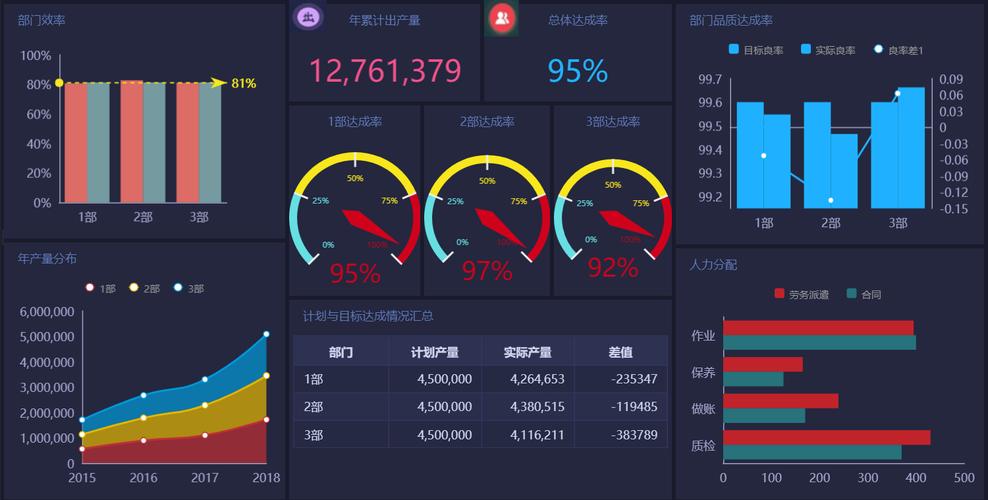2023年制造业年终总结报告
```html
Manufacturing Industry Big Data Yearend Report
As we conclude another year in the manufacturing sector, it's crucial to reflect on the trends, challenges, and opportunities that have defined the industry. Leveraging big data analytics, we can glean insights that inform strategic decisions, enhance operational efficiency, and drive innovation. This report encapsulates the key findings and recommendations derived from analyzing big data in the manufacturing realm.
The manufacturing landscape continues to evolve, influenced by various economic, technological, and geopolitical factors. Big data analysis reveals:
- Rapid adoption of automation and IoT technologies to streamline production processes.
- Increasing demand for sustainable practices, driving the shift towards green manufacturing.
- Growing emphasis on supply chain resilience and agility in response to global disruptions.
Big data analytics offer invaluable insights into optimizing manufacturing operations:
- Identification of production bottlenecks and optimization opportunities through realtime data monitoring.
- Predictive maintenance models reducing downtime and enhancing equipment reliability.
- Quality control enhancements by leveraging predictive analytics to detect defects early in the production process.
Efficient supply chain management is critical for maintaining competitiveness:
- Utilization of big data analytics for demand forecasting, inventory optimization, and supplier risk management.
- Integration of blockchain technology for enhanced transparency and traceability across the supply chain.
- Collaborative platforms fostering closer partnerships with suppliers and distributors for mutual benefit.
Big data facilitates innovation and enhances product development processes:
- Analysis of customer feedback and market trends to identify emerging needs and preferences.
- Utilization of augmented reality (AR) and virtual reality (VR) technologies for product design and prototyping.
- Application of machine learning algorithms for rapid iteration and optimization of product designs.
With the increasing digitization of manufacturing processes, cybersecurity is paramount:
- Implementation of robust cybersecurity measures to safeguard sensitive production data and intellectual property.
- Adoption of encryption protocols and access controls to prevent unauthorized access to critical systems.
- Regular employee training and awareness programs to mitigate the risks of social engineering attacks and data breaches.
Looking ahead, the manufacturing industry is poised for further transformation:
- Embrace emerging technologies such as artificial intelligence (AI) and 5G for enhanced automation and connectivity.
- Invest in talent development to foster a datadriven culture and empower employees with analytical skills.
- Forge strategic partnerships with technology providers and research institutions to stay at the forefront of innovation.

By leveraging big data analytics and embracing a culture of innovation, the manufacturing industry can navigate the complexities of the modern business landscape and emerge stronger and more resilient in the years to come.
